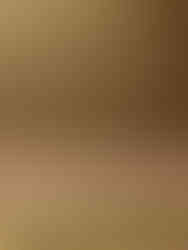David/Nicolas
- The Amphora Team

- Nov 4, 2025
- 3 min read
Updated: Jan 7
On the occasion of David Raffoul and Nicolas Moussallem’s latest collaboration with Iwan Maktabi, we met the Lebanese duo to learn more about their creative approach and latest projects.
The Amphora Guide: In what ways do living and working between Beirut and Milan influence your approach to design?
David/Nicolas: Living between Beirut and Milan really shaped the way we see things. Beirut gives us this emotional, spontaneous energy, it’s raw, full of contrasts. Milan, on the other hand, teaches us discipline, precision, and proportion. Moving between the two keeps us balanced, it’s like switching between instinct and structure, chaos and order. That duality is at the core of our work.
TAG: Storytelling is central to your work. How do you weave memory, emotion, and place into functional objects?
D/N: For us, everything starts with a memory or a feeling. It could be a material, a detail we saw somewhere, or even a smell. We try to capture that moment and turn it into something tangible. When a piece feels like it has a soul or a past, even if you can’t explain why, then it’s doing what we hoped for.
TAG: As design increasingly shifts toward experiences, how do you see your practice evolving in response to this change?
D/N: We’ve always believed design is about experience. It’s not just about how something looks, but how it feels, how it sounds, how it ages with you. As the world becomes more digital, we’re drawn more and more to things that feel human, materials that change over time, imperfections that tell a story. We want to design experiences that ground people, that connect them to something real.
TAG: You’ve built a long-standing relationship with Iwan Maktabi. How has the brand supported your creative journey over the years?
D/N: Our relationship with Iwan Maktabi has always been very organic. What we love about them is that they truly value experimentation, they see carpets as a form of art, not just decoration. Working with them feels like a conversation between designers and artisans, where everyone is pushing things a little further each time.
TAG: This year you’re launching Feuillage for Iwan Maktabi along with new creations for Orient 499. Can you share the inspiration behind these works and how they reflect the spirit of both brands?
D/N: Feuillage actually started from a marquetry drawing we made in wood, an abstract, organic composition inspired by nature. At some point we thought: what if we could bring that feeling to the floor? The idea of walking over something that represents nature felt poetic and grounding.
At the same time, we’re presenting Mida with Orient 499, a collection of low tables inspired by the majlis, those traditional spaces where people gather, talk, and share. We reinterpreted those forms in our own way, through craftsmanship, engraved wood, and soft geometry. Both projects are about connection, to nature, to people, to tradition.
TAG: Feuillage translates the fleeting beauty of nature into design. What was the most complex or challenging part of translating this idea into a collection, and why?
D/N: The hardest part was capturing something as fragile as a leaf’s movement in something as structured as weaving. We spent a lot of time with Mohammed Maktabi testing textures, adjusting tones, and layering materials until it felt alive. It’s always a balance between control and spontaneity, you want it to feel natural, but still refined.
TAG: Looking ahead, what excites you most about the future of design in the Middle East, and how do you see yourselves contributing to that narrative, especially given your collaborations with global brands?
D/N: There’s a really exciting energy in the region right now, a confidence that’s growing. People are no longer trying to imitate others; they’re creating from within, with their own voice. What excites us most is seeing craftsmanship and contemporary design coming together in new ways. Through projects like Feuillage with Iwan Maktabi and Mida with Orient 499, we hope to keep bridging those worlds, connecting the local and the global, tradition and modernity.














Comments